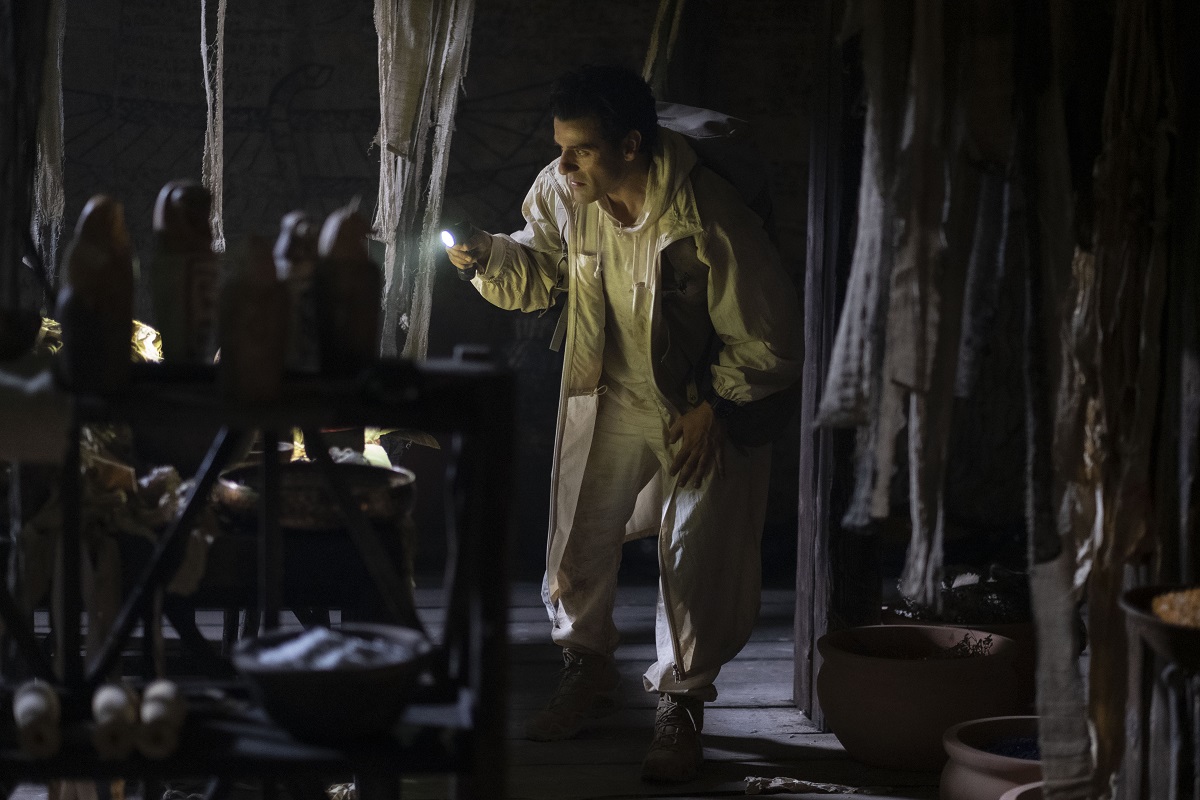This review contains spoilers for Marvel’s Moon Knight
Marvel’s Moon Knight isn’t lacking in story. Arguably, it has too much story for its own good. In the first three episodes alone we were introduced to a mentally unwell ex-mercenary with a murky past estranged from a wife he’s been lying to for years. Inside him is at least one identity (with another on the way) created to fill a role that the main identity is unable to. We’ve also been told that the central identity is in fact the earthly avatar of the moon god Khonshu. We’ve met an ex-avatar-turned-cult leader with a grudge who is intent on raising hell in the desert, and a group of ancient Egyptian gods who are apparently too ignorant to take more than a passing interest in the entire situation. And that’s before you get to the long list of all the things that don’t quite make sense yet.
So it’s with mixed feelings that I digest the fourth episode of the MCU series, “The Tomb”. As we finally approached a proper showdown between Marc/Steven and Arthur Harrow, we got some archaeological monster fun in the first two-thirds that admittedly had me wondering why I was watching Moon Knight and not Layla El-Faouly: Tomb Raider, before Arthur killed Marc in cold blood.
Marc dying is nothing new for fans of the Moon Knight comics. Part of the whole Khonshu deal is that the moon god can resurrect him if he gets into mortal danger. That’s how Marc became his avatar in the first place, as he’s explained. But Khonshu has now been imprisoned by the gods for his insolence, so it’s seemingly [extremely Thanos voice] no resurrections this time.
Instead, the creators of the show have taken this opportunity to adapt one of the greatest series in the character’s history: Jeff Lemire and Greg Smallwood’s Moon Knight, where Marc is locked up in a mental institution and has to find a way out while exploring his own mind. As he does so, he goes on a surreal, cosmic journey that slowly unpacks what is real and what might be a figment of his imagination. As a comic, it’s fantastic and well worth your time. As part of this TV show, it’s a sudden and wild left turn that expects the audience to go along for the ride.
Lemire’s 2016 story could easily hold up an entire season of television by itself, and though I’m as delighted as the next nerd to see it visualized on screen, Moon Knight intends to tackle it with only two episodes left to go! Once again, I find myself in “it’s a bold strategy, Cotton” territory, wondering if the show can ultimately make good on its ambitious narrative. Sprawling as it is, it feels way too constrained by time and format.
Has everything we’ve seen in the first three-and-a-half episodes of Moon Knight just been part of Marc’s fantasy? Is he really a patient in a mental institution who has used elements of his surroundings to create an epic action-adventure story in his mind? These are questions that the show now wants us to ask ourselves, and by slotting this scenario in as a twist some way into the series, some viewers are likely going to be frustrated by it – what was the point in watching all of that if it wasn’t “real”? Others may wonder why they’re even watching the twist play out at this stage if there is indeed an ongoing adventure in Ammit’s tomb that needs to be wrapped up.
For me, there’s also a Marvel elephant in the room right now. As much as Moon Knight has tried to pull us into the confusing and often upsetting world of Marc Spector’s mental turmoil, it hasn’t been able to get close to the level of skill and intrigue that Noah Hawley’s Marvel series Legion captured some years ago with the character of David Haller, an unreliable narrator misdiagnosed with schizophrenia and possessed by a parasitic mutant.
It’s unfair to compare the two in some respects, but important in others. Marvel Studios has probably spent more money on Moon Knight than Fox did on the first season of Legion, but splashing that cash on additional CG and action set pieces to give people what they expect from an MCU project has rather come at the cost of character development that should be at the heart of the show. And where Legion was given more episodes to linger on world-building and questions of villainy, Moon Knight has restrained itself to just six, pushing the story forward so forcefully and choppily that I can’t help but struggle to root for its lead.
I love the character of Moon Knight and the book that Marvel are adapting here, and I’ve generally been supportive of the MCU’s Phase 4 design to date, but I do find myself a bit worried by where we leave things at the end of this episode. The final two installments certainly have a lot of work to do if they’re going to make this series feel comfortably cohesive. I will keep my hope and interest alive until I’ve seen what Moon Knight intends to deliver as a final package.
